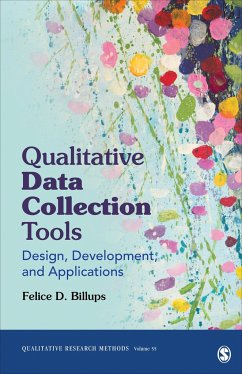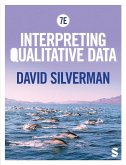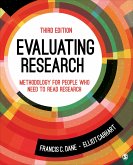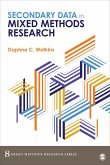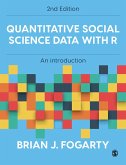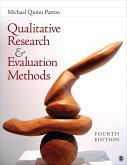Qualitative Data Collection Tools is a new and unique supplementary text that will guide students and new researchers to design, develop, pilot, and employ qualitative tools in order to collect qualitative data. An often-omitted subject in general qualitative textbooks, qualitative tools form the backbone of the data collection process. Students and new researchers are frequently left to create their own qualitative tools from scratch, an unnecessary hurdle in the qualitative research design process. Author Felice D. Billups has used her experience as a qualitative researcher, and in teaching and advising students about qualitative research, to develop the templates in this book as a starting point for readers conducting original qualitative research. The author briefly describes each method of data collection and offers readers suggestions for using and adapting the qualitative instrument templates within the text. Templates of interview protocols, focus group moderator guides, content analysis tools, document analysis tools, reflective questionnaires, diary and journal logs, and observational rubrics give the reader either a cut-and-paste solution for their own research or a starting point to design their own personalized qualitative tools.
The first three chapters illuminate the qualitative data collection process and the role each type of qualitative tool plays in that process. The next six chapters provide detailed guides and numerous templates for each qualitative data collection method, covering interviews, focus groups, conversation and discourse analysis, observations, document analysis, field notes, journaling, and other reflective practices. A final chapter pulls together the multifaceted nature of qualitative research design and connects each tool back to the methodology to ensure trustworthiness and rigor in the data collection and instrument development process. Exemplars populate the appendices, offering readers concrete inspiration for ways to use and adapt the tools provided.
If you have ever puzzled over how to best to design qualitative tools in order to guide and structure your qualitative data collection, or if you are embarking on your first qualitative study, Qualitative Data Collection Tools will give you a practical starting point to help make your qualitative data collection process easier and more organized.
The first three chapters illuminate the qualitative data collection process and the role each type of qualitative tool plays in that process. The next six chapters provide detailed guides and numerous templates for each qualitative data collection method, covering interviews, focus groups, conversation and discourse analysis, observations, document analysis, field notes, journaling, and other reflective practices. A final chapter pulls together the multifaceted nature of qualitative research design and connects each tool back to the methodology to ensure trustworthiness and rigor in the data collection and instrument development process. Exemplars populate the appendices, offering readers concrete inspiration for ways to use and adapt the tools provided.
If you have ever puzzled over how to best to design qualitative tools in order to guide and structure your qualitative data collection, or if you are embarking on your first qualitative study, Qualitative Data Collection Tools will give you a practical starting point to help make your qualitative data collection process easier and more organized.

